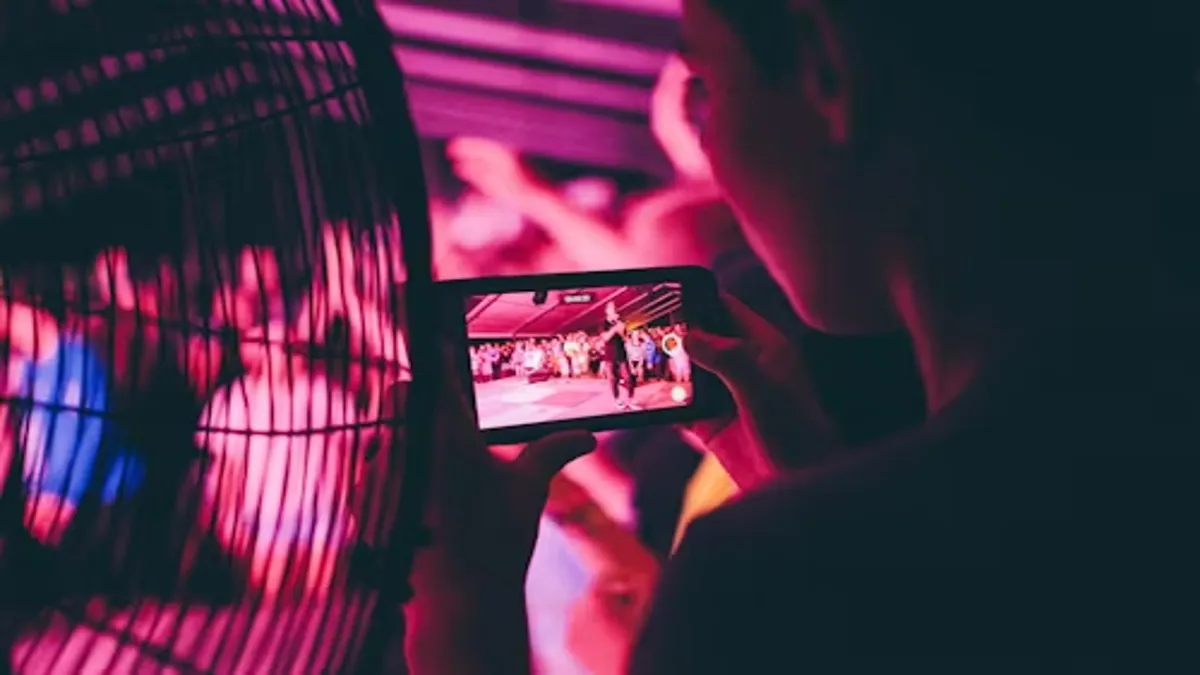In today’s digital age, Kpop fap has become a controversial term representing the collision between fan admiration and digital eroticization. Within the first hundred words, the searcher’s intent is clear: understanding how such content emerged, what it means for fan culture, and why it poses moral and social dilemmas. Rooted in the global rise of K-pop, this phenomenon reveals the blurred line between creative fan expression and the invasion of personal boundaries. The discussion is not about explicit material—it’s about how technology, celebrity worship, and the psychology of fandom have reshaped intimacy and privacy in online spaces, forcing society to confront difficult questions about consent and digital ethics.
The Rise of Parasocial Intimacy
K-pop thrives on closeness. Through livestreams, reality shows, and fan messages, idols cultivate emotional proximity with their audiences. Psychologists call this dynamic parasocial intimacy—a one-sided relationship that feels deeply personal. “Fans often feel known even when they are not seen,” explained media sociologist Dr. Yuna Park. When this emotional attachment combines with online accessibility, it breeds both devotion and desire. What begins as admiration can morph into fantasy. The rise of fap culture—fan-created adult reinterpretations of idols—reflects this blurred line, where affection and objectification coexist in a single digital heartbeat – Kpop Fap.
Digital Platforms and the Amplification of Fantasy
Platforms like Twitter, Reddit, and certain fan forums have accelerated the spread of explicit or suggestive fan-made media. Algorithms amplify engagement regardless of ethics, rewarding visibility over virtue. “The system doesn’t care about consent; it cares about clicks,” observed digital ethics expert Professor Helen Strauss. In the case of K-pop idols, whose images are meticulously controlled by agencies, such content violates contractual and personal boundaries. The anonymity of the internet creates moral detachment, transforming private fantasies into public commodities—raising profound questions about the nature of consent in virtual cultures – Kpop Fap.
Table 1: The Spectrum of Fan Engagement
| Type of Engagement | Description | Ethical Implication |
|---|---|---|
| Supportive Fandom | Streaming, voting, attending concerts | Healthy emotional investment |
| Creative Fandom | Fan art, fan fiction, cosplay | Positive self-expression with boundaries |
| Erotic Fandom | Adult fanfiction or manipulated images | Ethical gray area, depending on consent |
| Exploitative Content | Non-consensual deepfakes or leaks | Ethical violation and privacy breach |
The Ethics of Representation and Consent
While fan creativity is integral to K-pop culture, the ethical boundary emerges where expression becomes exploitation. Idols are workers, often under strict contracts that regulate image and conduct. Non-consensual adult representations compromise both dignity and legality. “Consent is not transferable through celebrity,” said human rights lawyer Eun-Ji Kim. The romanticized intimacy of idol-fan dynamics makes such content especially problematic—it manipulates the illusion of closeness to justify intrusion. Digital culture must now confront whether fictional desire justifies real-world harm, and where fan fiction becomes digital voyeurism – Kpop Fap.
The Role of Technology: From Fanfiction to Deepfakes
Artificial intelligence has complicated this issue further. Deepfake technology allows the creation of hyper-realistic, non-consensual images of idols, often spread under the guise of “fan edits.” “We’re entering a moral crisis of representation,” warned tech ethicist Michael Grant. What once required imagination now requires only software. This democratization of image manipulation turns individuals—especially public figures—into vulnerable targets. In the K-pop ecosystem, where idols maintain strict public images, deepfakes inflict not only emotional harm but also reputational damage across global fanbases.
Table 2: Technological Drivers of Boundary Violation
| Technology | Common Use | Risk Factor |
|---|---|---|
| AI Deepfakes | Synthetic imagery and video creation | High – non-consensual exploitation |
| Algorithmic Amplification | Viral sharing of explicit fan content | Medium – visibility without verification |
| Private Chat Leaks | Unauthorized content circulation | Severe – direct privacy invasion |
| Fan Fiction Platforms | Publishing adult scenarios | Moderate – consent and ethical ambiguity |
Fandom Psychology: Why the Line Blurs
The psychology of fandom reveals that eroticization is not simply about desire—it’s about control and proximity. For fans, creating or consuming adult-oriented content becomes a way to “possess” the unattainable. “Fandom transforms emotional longing into narrative participation,” said cultural psychologist Dr. Sahana Krishnan. This behavior intensifies when combined with social media’s illusion of accessibility. Idols post selfies, livestream meals, and reply to fans; the distance between real and imagined intimacy collapses. As a result, the boundary between affection and appropriation becomes alarmingly porous – Kpop Fap.
Industry Accountability and Corporate Silence
Entertainment agencies face a delicate paradox: they encourage idol accessibility to maintain fan loyalty yet fail to protect their artists from online sexualization. Public relations teams often avoid acknowledging the issue, fearing that confrontation might amplify exposure. “The silence of agencies equates to passive complicity,” argued cultural critic Sunwoo Lee. Some companies have begun employing legal teams to track and report deepfake creators, but enforcement remains inconsistent across jurisdictions. The lack of international frameworks for digital consent leaves idols defenseless in a globalized media environment.
Cultural Double Standards: East vs. West
The reception of sexualized fan content varies by culture. In Western entertainment, adult reinterpretations of celebrities are often dismissed as internet subculture, whereas in Korea, such behavior breaches moral and professional boundaries. “The idol system is built on purity and aspiration,” explained K-pop historian Min-Ho Jeong. The contrast reveals deeper cultural divides regarding celebrity identity: Western stars often embrace autonomy, while K-pop idols are constructed as aspirational role models. The violation of that ideal carries heavier social and emotional consequences, amplifying the ethical stakes of such content.
Online Responsibility: Fans as Gatekeepers
A growing number of fan communities have begun self-policing explicit content, emphasizing respect and consent as part of fandom ethics. Hashtags like #RespectTheIdols and #NoToDeepfakes circulate alongside campaigns urging users to report exploitative material. “Real fans protect, not possess,” said fan organizer Hyejin Park. These digital movements illustrate a maturing fandom that values responsibility alongside passion. The challenge lies in maintaining collective vigilance in spaces where virality rewards provocation. Ethical fandom is no longer an abstract principle—it’s a digital survival strategy – Kpop Fap.
The Broader Conversation: Media Literacy and Emotional Awareness
Education remains the most powerful tool for change. Media literacy programs can help fans recognize the difference between expression and exploitation. “Young audiences need emotional vocabulary for digital intimacy,” urged psychologist Dr. Lara Nguyen. Schools, fandom communities, and platforms alike can teach empathy-based online behavior—turning fans from passive consumers into conscious participants. Recognizing the humanity behind every image or performance is essential to curbing exploitative behavior while preserving the creative joy that defines fandom itself.
Conclusion: Reclaiming Humanity in Digital Admiration
Ultimately, Kpop fap is not a conversation about content but about conscience. It reveals the fragility of privacy in a world where technology can manufacture intimacy without consent. The idols at the center of this issue are not symbols—they are human beings navigating fame in the digital spotlight. As fans, creators, and platforms, our collective responsibility lies in restoring dignity to admiration. The future of fandom depends not on censorship, but on compassion—a renewed understanding that behind every fantasy lies a real person deserving respect, autonomy, and peace.
FAQs
1. What does “K-pop fap” refer to?
It refers to adult-themed or eroticized fan content involving K-pop idols, often shared online without consent.
2. Why is it controversial?
Because it involves real people, often without their permission, raising serious ethical and legal concerns.
3. How do K-pop agencies respond to this issue?
Most agencies monitor online spaces and pursue legal action, though consistent enforcement remains difficult globally.
4. Are all forms of fan creativity harmful?
No. Non-explicit fan art and fiction can be positive expressions of admiration if they respect boundaries and consent.
5. What can fans do to create responsibly?
Support creators ethically, avoid sharing exploitative content, and promote a culture of respect within fandom communities.















